How Long Should My Résumé Be?
Writing a resume can quickly become one of the most daunting parts of a job search or career change effort. It’s not surprising that people have many questions about resumes, resume etiquette, resume format, resume language, etc.—especially if they are at the executive level and haven’t had to write a resume or cover letter in quite some time. Proper length is one of the concerns I often hear.
How long should my resume be? Is it okay to have a three-page resume? What about two pages? These are some of the most common questions we hear about resume format as professional resume writers. My answer to our clients who are trying to write a resume is that one size does not fit all. In addition to that, if you are writing a mid-level or executive resume, one page probably does not fit all, either! Traditionally, resumes are one, two, or three pages. (In some industries and countries more than three pages are acceptable, and even expected!). So what are my resume tips for the length of a professional resume?
So What’s the Answer?
Here’s my answer, although you might not like it—a good resume isn’t a good resume because of its length. There’s no standard resume length or resume format. But don’t give up reading just yet! While I can’t give a one-size-fits-all answer about whether you should be writing a one-page resume, a two-page resume, or a three-page resume, I’ll provide you with a few tips and the information you need to decide which resume length works best for your career and industry needs.
There are many factors that can impact the length of your resume: employment gaps, particularly impressive or relevant achievements, certifications and professional development, or affiliations that you want to include because they matter for a specific employer, etc. You may need to play around with a chronological format and a functional resume format, or perhaps even a combination resume format to figure out what works best for you to get the attention of a potential employer. However, no matter what resume format you use, what field you are in, or what job you are applying to, there are a few key points that can help you assess if your resume is the right length for your current employment target and future professional goals.
Who Should Have a One-Page Resume?
What works for one professional may not work for the next, as everyone has a unique employment history, and a unique set of professional circumstances, skills, and experience. Typically, one-page resumes are most common for entry-level or recent graduates. Someone with little experience or just starting out would probably have no need to go beyond one page. If you’re writing your resume and find you don’t have enough strong information to include to fill two pages, stick to one page. Don’t include irrelevant information to try to get two full pages because you heard that was the best length. You will make more of an impression on a hiring manager if you stick to a one-page resume consisting of high-impact information. But this also does not mean that all resumes have to be one page only. The limited one-page resume is a common misconception. If you look at the sample resumes page of our website, you’ll see many sample resumes that are two or three pages long.
…And a Two-Page Resume?
A two-page resume is probably the most common. Most mid-career and executive-level job seekers should easily be able to fill two pages. In the space of two pages you should clearly show your experience, qualifications, and accomplishments to give a prospective employer a clear picture of your professional history. If you don’t have enough information about your work experience to fill two full pages, you may want to reformat your resume and tweak the content of your resume to get it all to fit either on one page or two full pages. And, don’t forget to consider moving some information from your resume to your cover letter, or from your cover letter to your resume.
What if you have the opposite problem, too much content for two pages—what shouldn’t you do to get down to two pages? One easy answer to that is do not make the font size so small that it is hard to read and obviously shows that you made the font size smaller just to fit the information in your resume layout. Potential employers—just like teachers—know about font size tricks. Instead, focus on incorporating the strongest information and rewriting descriptions of experience, skills, accomplishments, etc., to make them more concise and impactful. Cut out soft skills that don’t actually speak to your unique professional experience and replace long-winded sentences with action verbs that hammer home your experience. Persuasive writing is the key here—you’ll be surprised how you can strengthen and shorten your resume at the same time by using strong, persuasive language. Remember, you’re not the only candidate for this job. (Unless you got really lucky!) The reader of your resume is looking over many resumes in a day. Make your resume interesting and impactful, make the resume layout easy to follow, and don’t contribute to their eye strain.
When you format a resume, don’t just think about the length; think about the white space, the ease of reading, and what the modern visual experience is like (reading on the internet, etc.). As you format a resume, you may need to make adjustments to the writing to keep the length appropriate to your needs and get it down from three to two pages or from four to three pages—but you can also incorporate elements like charts, graphs, etc., to emphasize important information without having to write lengthy sentences that take up valuable space.
Okay, and a Three-Page Resume?
The third page of a resume is usually reserved for publications, extensive education, or awards, recognitions, and accomplishments that are not listed in the body of the resume. If your resume is stretching onto a third page because you are going back 30 years to cover your full job history, you may want to rethink that. You may have 30 years of experience, but is it all relevant and impressive? Does that entire work history include information that an employer needs to know about you for the position you are now applying to? If you are writing the type of resume for which a third page is appropriate, then by all means include it. But don’t stretch your words or descriptions just to get a resume to three pages long. That does not help you get an interview or a job.
Resume writers also commonly get asked how far back should a resume go? Just like with length, you need to pay attention to the individual needs of the position you are applying to, but the norm is 10-15 years of your job history. However, some professions or positions might require a more comprehensive overview going beyond the typical 10-15 years of work experience. Tailor your resume to include the information requested in the job posting, by human resources, or by recruiters, and tailor your resume so it includes the most relevant work experience, relevant skills, and impressive and relevant achievements. Hiring managers want to see the information that matters to them, and they want to see the information they asked for. Unless it’s specifically asked for or extremely relevant, a potential employer probably won’t care that you, now an executive, made your foray into full-time work with a cashier job in 1987, or that you had a college internship in 1992.
Whatever the length of your resume, it is crucial to use the resume format that offers a length that will benefit you the most. That’s why there is no hard and fast rule—it depends on you, your work experience, and what the hiring managers you are applying to are looking for.
Is It Time to Call a Professional Resume Writer?
If you’re still unsure as to what resume length is right for you, it might be time to call a resume expert. Great Resumes Fast works with professional and executive-level job seekers in the development of their customized, personally branded resumes, cover letters, and social networking profiles. We can create a modern resume focused on you and your career goals to help you advance further down your career path. Our resume writing process includes discussion with you about your career and your goals—filling in a template is not what we do.
Call toll free 800-991-5187 to speak to a member of our team of professional resume writers and find out how our executive resume writing services can help you achieve your career goals. You can also request a free resume analysis by sending your resume to freeanalysis@greatresumesfast.com.
Share this post:

About the author
Jessica Hernandez, President, CEO & Founder of Great Resumes Fast
Hi, I’m Jessica. I started this company back in 2008 after more than a decade directing hiring practices at Fortune 500 companies.
What started as a side hustle (before that was even a word!) helping friends of friends with their resumes has now grown into a company that serves hundreds of happy clients a year. But the personal touch? I’ve kept that.
You might have seen me featured as a resume expert in publications like Forbes, Fast Company, and Fortune. And in 2020, I was honored to be named as a LinkedIn Top Voice of the year!
I’m so glad you’re here, and I can’t wait to help you find your next perfect-fit position!
8 Comments
Leave a Comment
Improve Your Resume: Download Your Free Executive Resume Template Today
Are you struggling to create an executive resume that will impress employers? Download this free executive resume template and receive a series of 10 emails with expert guidance on how to write resume content that resonates with employers so you get more interviews.
It's everything you need to stand out, make an impression, and accelerate your job search.
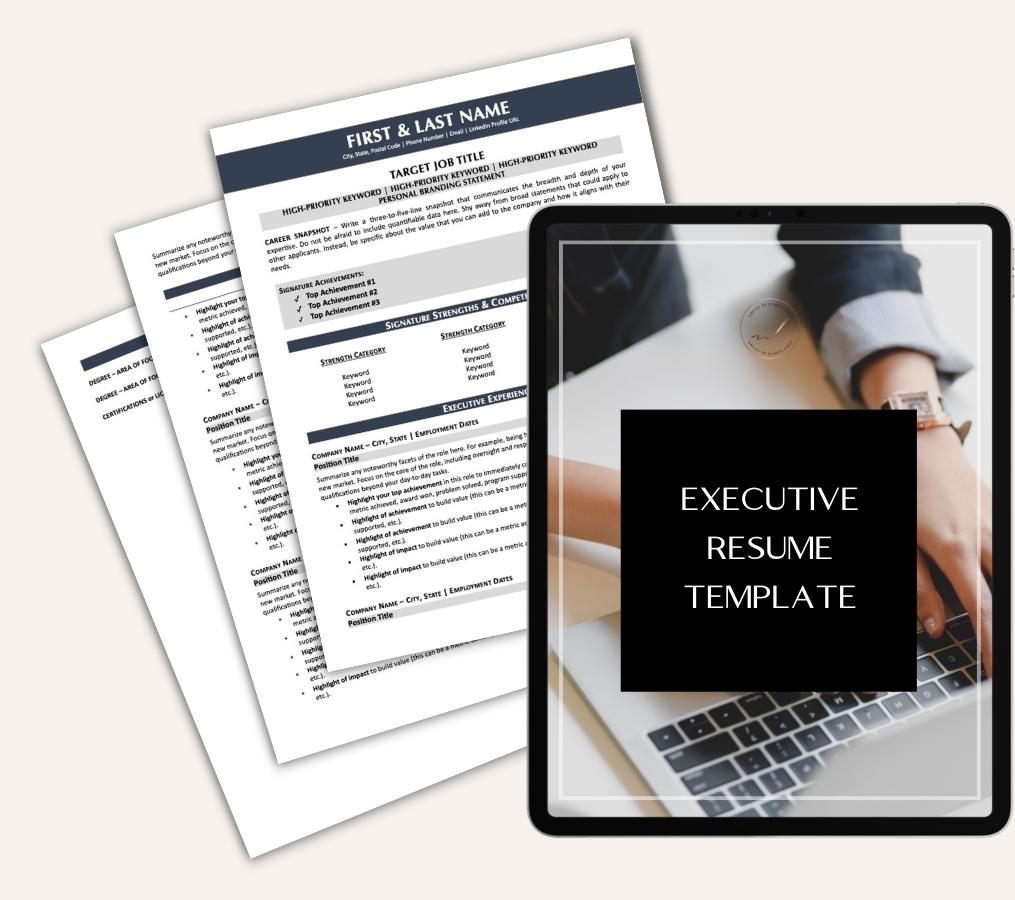

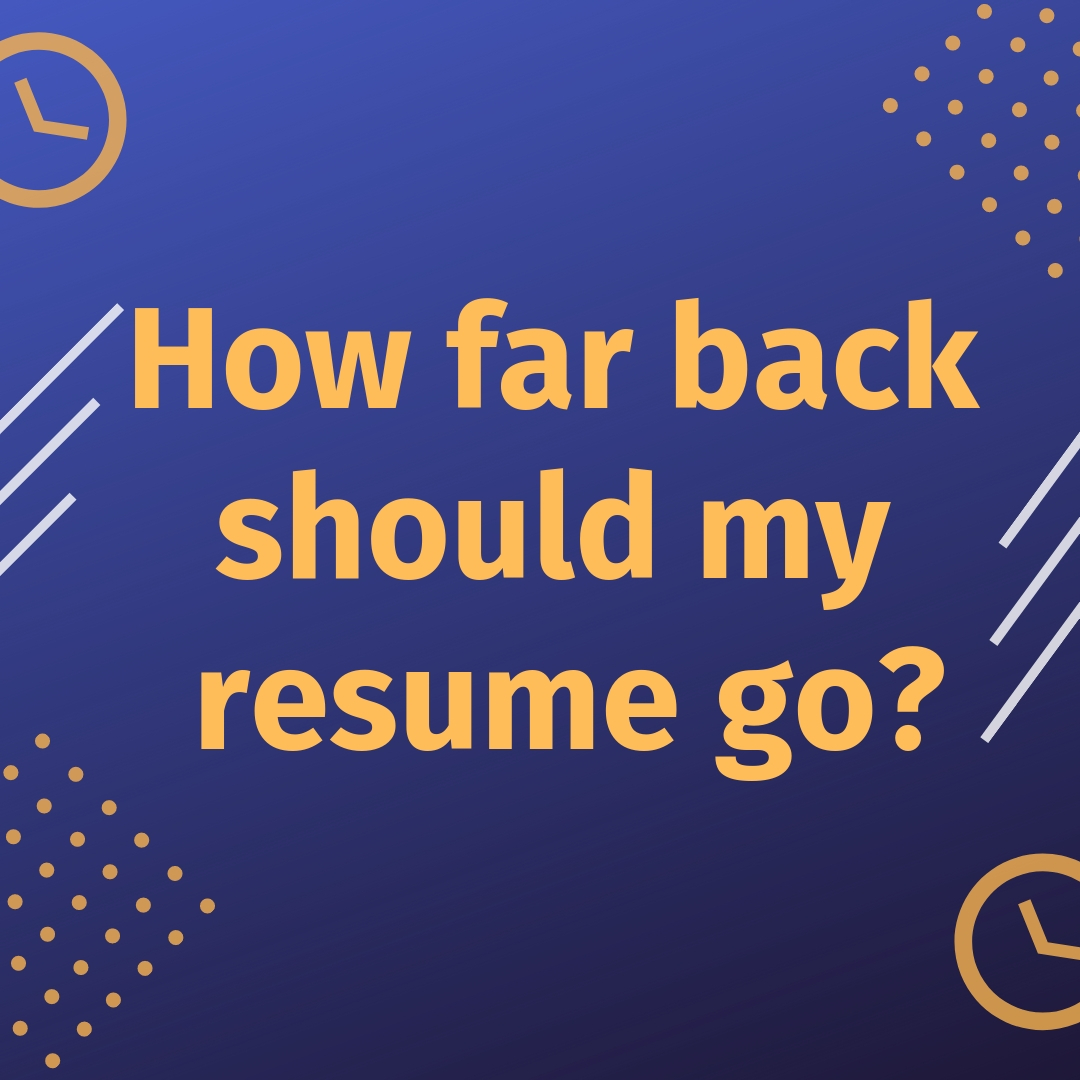
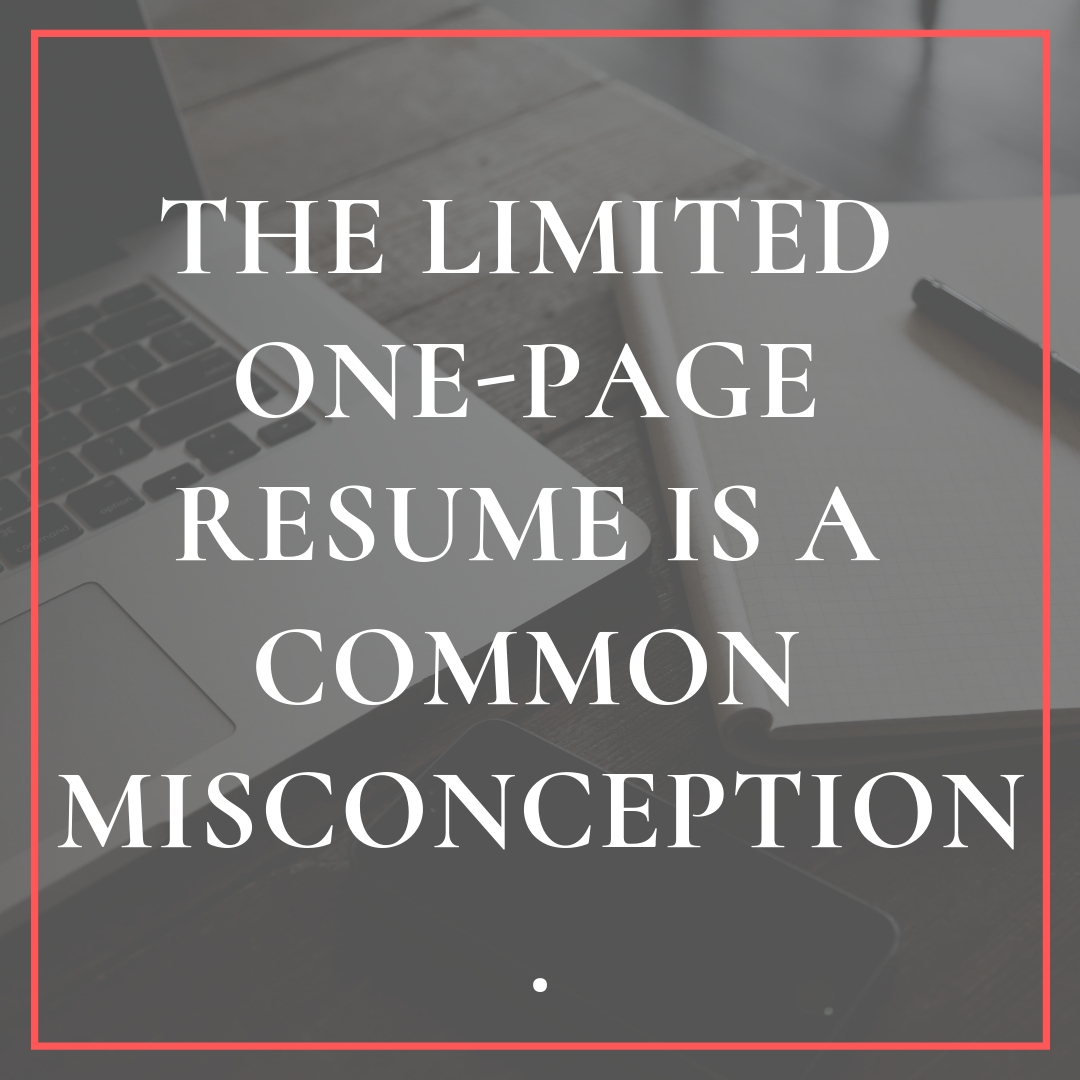


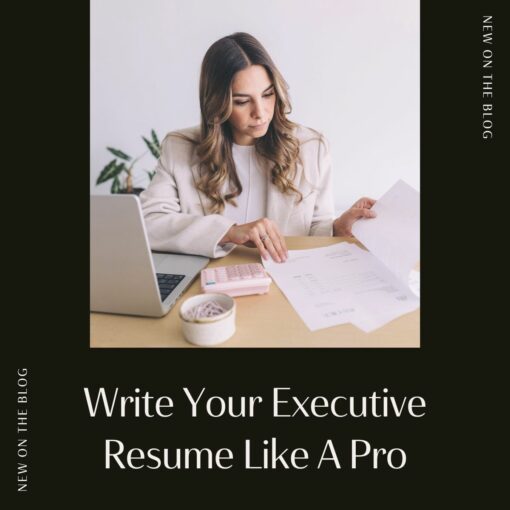
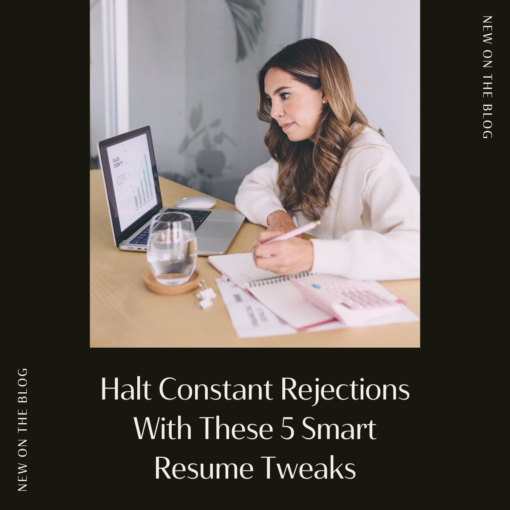




This is a difficult issue that I am grappling with presently. I haven’t had a lot of jobs, for my age (54) but I DO have a lot of experience and achievements as a General Manager/MD which I have cut down from a 4 page resume to 3. Reducing further seems impractical or almost impossible to squeeze into 2 pages – it means leaving out key relevant achievements, which when looking for a job at my level is perhaps unwise, given the competition for the few jobs around; or leaving out jobs prior to say, the last 20 years but which have value to my background. As an employer, I’ve always wanted to see a candidate’s full career path written down – and I’ve also been more than willing to hire very seasoned people (one of my best ever hires was over 60 when I took him on!).
I agree a ‘book’ is too much – but a recruiter who dismisses anything over 2 pages is not doing a satisfactory job, in my view, of reviewing the talent available for himself or his client. The key is to make what one writes interesting and compelling; succinct to understand and relevant to the particular job being applied for. Tailoring the content to suit is important. After a career where I have never had to look for a job in over 30 years (I’ve been head-hunted or recruited by people who know me each time I’ve moved) I admit that it’s not easy to have to get to grips with a job search! And crafting a ‘perfect resume’ is the first challenge we all face. And as you say, there’s not a perfect answer.
It’s nice to see a complete response an age old question. Great job!
Good article on resumes. In regards to Greg’s comments about recruiters and resumes. It is not really the length that is important, but that you have have to say the right words in your summary to convince them to read more and that you look like a match for the position they are trying to fill. Other wise you go the “circular file”.
I enjoyed reading Greg’s point of view. Resumes are sales tools designed to familiarize yourself with an unfamiliar audience in such a way that it generates positive interest in you as a candidate. If you ask 10 resume writers, hiring managers or recruiters what the secret recipe is to generate enthusiasm, you will assuredly receive 10 different responses. Focus first on quality of content, matching your attributes with those of the job description and make a compelling case for how you see yourself adding value. The length of your message needs to be considered because length is part of the presentation. Yet, if your message is compelling, chances are that you will have the readership.
Sean – Agreed. It’s so valid that if you ask 10 different recruiters or managers what they look for or want in the CV/resumes they are looking at you will get different answers.
For example – age or date of birth. I’ve been told to leave it out, leave it in. Good reasons on both sides to do either, but WHICH does one choose? The answer, of course, is that you just don’t know because generally you don’t know who will be reviewing it and what is their attitude? Personally? I probably always do a mental calculation when I read a CV without an age or DoB in anyway – as I’ve said, I am not at all ageist – but I DO need to consider the make up of the team the person might join or lead. I don’t make preconceived judgements – if experience etc causes me to think I should interview the person then I’ll call them in regardless. So personally, having the age easy to read rather than have to calculate it is preferable. But I wouldn’t discard a resume for its absence. But I am afraid I am becoming paranoid as to what to do in my own CV! 🙂
The length of resume depends on experience. One page is good but two pages are fine if space is filled with relavant experience and results achieved.
Thanks for such a clear guidence!
I have the same opinion on the matter.
[…] recently read two good articles on the topic of how long your resume should be. The first, How Long Should My Resume Be? is from Great Resumes Fast. The other, Resumes for Executive Jobs – Tips on Length, […]